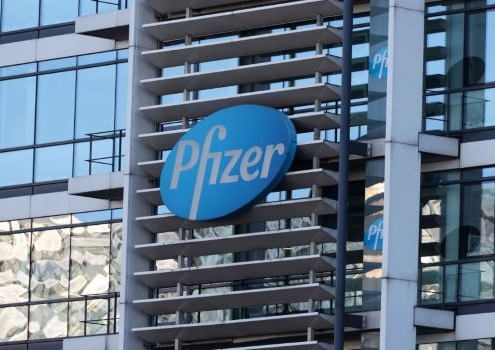Pfizer Abandons Ionis’ Cardiovascular and High Triglyceride Program
Pfizer Abandons Ionis’ Cardiovascular and High Triglyceride Program
Pfizer and Ionis Pharmaceuticals announced that the former is abandoning its vupanorsen program for cardiovascular (CV) risk reduction and severe hypertriglyceridemia (SHTG), or high triglycerides. Pfizer was leading the program.
The decision came after results from the Phase IIb TRANSLATE-TIMI 70 study. The study hit the primary endpoint, demonstrating a statistically significant decrease in non-high-density lipoprotein cholesterol (non-HDL-C) and statistically significant reductions in triglycerides and angiopoietin-like3 (ANGPTL3). The companies indicate that despite that, the magnitude of non-HDL-C and TG reduction didn’t support continuing the development of the drug for CV risk reduction or SHTG.
The two companies inked the licensing deal in November 2019. Pfizer will return development rights to Ionis.
“While this outcome is disappointing, the clinical and scientific knowledge derived from the vupanorsen program will hopefully contribute to a greater understanding of cardiovascular risk reduction and severe hypertriglyceridemia and the current gaps in treating these conditions,” said Dr. James Rusnak, senior vice president and chief development officer, internal medicine and hospital at Pfizer.
“Pfizer remains dedicated to research and development in the cardiovascular category and helping to address the unmet medical needs of patients with cardiovascular diseases. We are grateful to the patients, investigators and support staff who have participated in this important research program,” he continued.
Vupanorsen is an antisense therapy discovered by Ionis. The drug targets ANGPTL3, a genetically validated target of lipoprotein metabolism.
Only a week ago, Pfizer and OPKO Health received a rejection from the U.S. Food and Drug Administration for the once-weekly human growth hormone somatrogon for growth hormone deficiency (GHD) in pediatric patients. Neither company detailed the reasons for the rejection.
Although that was undoubtedly a blow, Pfizer’s COVID-19 program, both the vaccine with BioNTech and its recently authorized Paxlovid, are filling the company’s coffers, giving it leeway for misfires like vupanorsen and somatrogon.
In terms of the antiviral combination therapy, Paxlovid, which was authorized in December 2021 by the FDA, the company announced a distribution deal in November with the U.S. government to supply 10 million courses of the cocktail. In the third quarter of 2021, Pfizer reported revenues of $11.1 billion for the vaccine and projects $29 billion from it this year.
Ionis isn’t likely to be in as good a position, although on January 4, 2022, the company announced that Biogen had exercised its option from Ionis for a global royalty-bearing license to develop and commercialize BIIB115/ION306, an investigational antisense oligonucleotide for spinal muscular atrophy (SMA). Biogen made a one-time $60 million payment to Ionis in the fourth quarter of 2021, and there are potential post-licensing development, regulatory and commercial milestones as well as possible royalties on annual worldwide net sales.
And on January 18, Ionis announced that its partner, Roche, was launching a Phase II trial to study tominersen in Huntington’s disease. Dosing had been halted in the Phase III GENERATION HD1 trial, with post-hoc analyses suggesting the drug might benefit younger adults with a lower disease burden.
“These findings are promising and warrant a new study designed to test tominersen in this specific patient group,” said C. Frank Bennett, Ionis’ EVP, chief scientific officer and franchise leader for neurological programs.
In terms of the vupanorsen program being returned to them, Richard S. Geary, EVP and chief development officer of Ionis, stated, “Although this is not the outcome we would have liked, we are grateful for this collaboration with Pfizer whose leadership in the development of vupanorsen has been instrumental in gaining important insights and learnings that will help us continue to deliver potentially life transforming treatments for people impacted by cardiovascular disease.”
BioSpace source:
https://www.biospace.com/article/pfizer-abandons-ionis-cardiovascular-and-high-triglyceride-program




